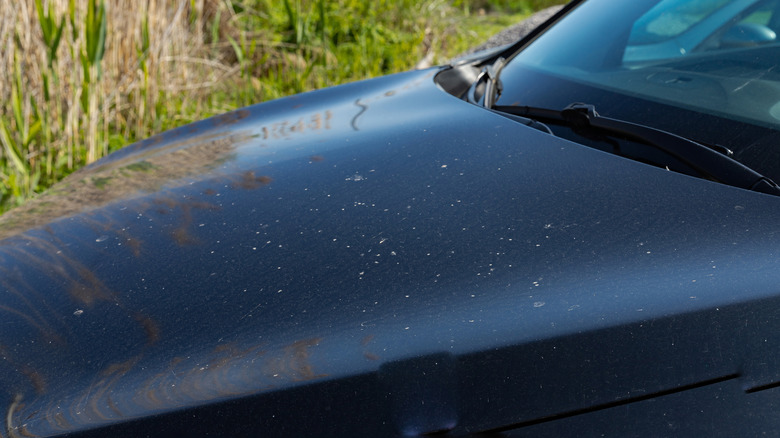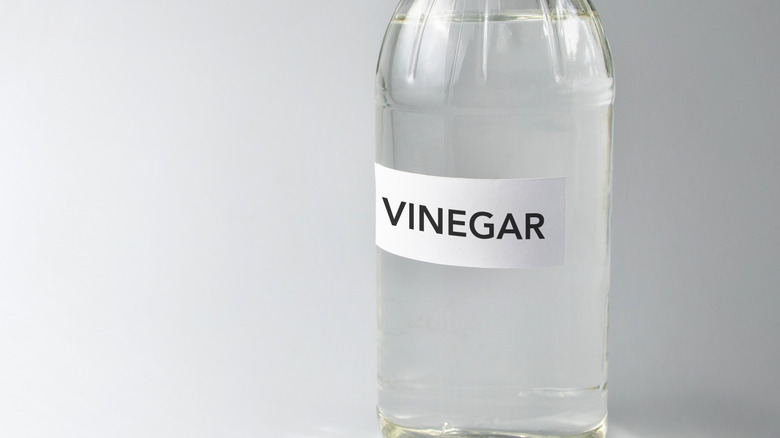Can You Use Vinegar On Car Paint To Combat This Common Weather-Related Issue?
A frequent irritation endured by most car owners is the presence of various weather-induced stains on their car's paint and body. This can range from hard water stains and mineral deposits marring your paint job to buildup of road salt and residue accrued while driving in the winter.
While these kinds of problems won't endanger your car's functionality, they are unsightly and can be annoying to deal with alongside your car's regular upkeep. The usual solution for some kind of visual defect would be a hearty cleaning with soap and water, but if there are only a few weather-induced spots on your car's paint job, there is a simpler, more economic option: white vinegar. A simple bottle of distilled white vinegar, the kind readily available at your local grocery store, can dissolve those gross spots and let your car's paint shine through. It only takes a bit of simple mixing with water and some light dabbing with a microfiber cloth.
A bit of vinegar can remove hard water spots and road salt buildups
If you've got hard water spots or road salt buildups on your paint, all you need to deal with them is a bottle of distilled white vinegar, a bowl of clean water, and a microfiber cleaning cloth. The vinegar at your local grocery store is usually 5% distilled, which is the ideal concentration for this particular purpose. There are higher concentrations available, but more concentrated vinegar has a risk of stripping or etching your car's paint.
To clean off hard water spots, just get a bowl or bucket and dilute the vinegar with water at a 50/50 ratio. Dip a microfiber cloth into the mixture and test it in an innocuous spot on your car to make sure it's working right. If it's good, you can gently apply the mixture to a hard water stain or salt buildup. With luck, it should start dissolving and slide right off. If the 50/50 ratio doesn't work, you can increase the vinegar a tiny bit and test it again, though you should never use completely undiluted vinegar. Once you've successfully scrubbed the stains and deposits off your car, rinse it thoroughly with clean water to get all the vinegar off. Don't let the vinegar dry on your car, as it could leave streaks.
A quick word of warning: do not use vinegar to clean your car if you've just applied some manner of chemical surface protection like wax or sealant, as the vinegar will also strip those substances off. If you have to use vinegar in this case, you'll want to reapply the protectants as soon as you can.

